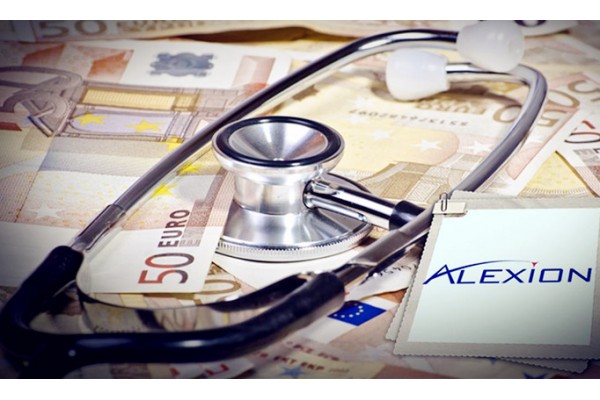Alexion Wins Expanded Approval for Blockbuster Drug Soliris
October 25, 2017
Source: Biospace
 1,088
1,088

Alexion Pharmaceuticals Inc. is set to secure even more revenue from its blockbuster drug Soliris, the most expensive drug in the world.
On Monday, the U.S. Food and Drug Administration expanded its approval for the blood-disorder drug Soliris. The FDA approved Soliris as a treatment for adults with generalized myasthenia gravis (gMG) who are anti-acetylcholine receptor (AchR) antibody-positive. The drug was approved for the subset of rare disease patients after Phase III data showed benefits for patients. By selectively and effectively inhibiting the terminal complement cascade, Soliris targets a critical underlying cause of the disease. About 15 percent of gMG patients will benefit from Soliris.
Soliris has also been approved in the European Union for the treatment of refractory gMG in adults who are anti-AchR antibody-positive.
Myasthenia gravis (MG) is a debilitating, chronic and progressive autoimmune neuromuscular disease. GMG, a more severe form of the disease, includes weakness of the head, neck, trunk, limb and respiratory muscles. The disease can be life threatening. Alexion said in cases of patients who have anti-AchR antibody-positive MG, “the body’s own immune system turns on itself to produce antibodies against AchR, a receptor located on muscle cells at the neuromuscular junction (NMJ) and used by nerve cells to communicate with the muscles these nerves control.”
John Orloff, Alexion’s head of research and development, called the approval of Soliris for this indication a “significant milestone” for the company and for those gMG patients who will benefit from Soliris.
James Howard, of the Department of Neurology at the University of North Carolina and lead investigator, was enthusiastic about the expanded approval. He said it was exciting to see patients who have not responded to existing therapies now have a treatment option that can improve their quality of life.
With an annual price tag of about $440,000, Soliris is known as the world’s most expensive drug. In addition to its new indication, Soliris is used to treat paroxysmal nocturnal hemoglobinuria, a rare blood disorder that affects about one or two people out of every million.
The news was certainly welcome for Alexion and its new executive team. For the past year, Alexion has been under a cloud as the U.S. Department of Health and Human Services investigated its support for charities that aid Medicaid patients as well as with allegations of improper sales practices for Soliris. Those allegations lead to the resignation of the former CEO David Hallal, as well as Vikas Sinha, the company’s chief financial officer. In January of this year, Alexion admitted that unnamed members of its senior management team used “inappropriate business tactics” to market Soliris. In January, the company said some revenues pulled in 2015 and 2016 were “realized by employee actions that involved inappropriate business conduct, including violations of company policies and procedures.”
Since taking over the reins of embattled Alexion in March, new CEO Ludwig Hantson has been reshaping the leadership team of the company. He conducted a purge of Alexion’s former leadership team, and then began to bring in new C-suite-level leaders, many of them his former colleagues from Baxalta.
Geoffrey Porges, an analyst with Leerink, predicted the expanded role of Soliris will generate $1.2 billion in annual sales within five years. If that hits as predicted, Soliris will earn Alexion about $5.3 billion annually, Porges said in a note, as reported by Endpoints News.
Nancy Law, head of the Myasthenia Gravis Foundation of America, called the approval of Soliris for the gMG subset a “landmark day.” In a statement released by Alexion, she said there has not been a new therapy approved for generalized myasthenia gravis in more than 60 years.
By DduRead more on
- Breakthrough Device Designation Granted to Digital Intervention for Alzheimer’s August 27, 2018
- FDA Approved Eye Drop Oxervate to Treat Neurotrophic Keratitis August 27, 2018
- Experimental Ebola Treatments Approved by Congo as it Sees Flare-Up in Cases August 24, 2018
- First Dual-Lead Nerve Stimulator for Pain Management gets FDA Nod August 22, 2018
- Bristol-Myers Squibb’s Opdivo Ensures a Lung Cancer Position August 22, 2018
your submission has already been received.
OK
Subscribe
Please enter a valid Email address!
Submit
The most relevant industry news & insight will be sent to you every two weeks.



